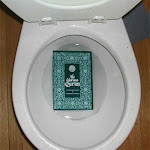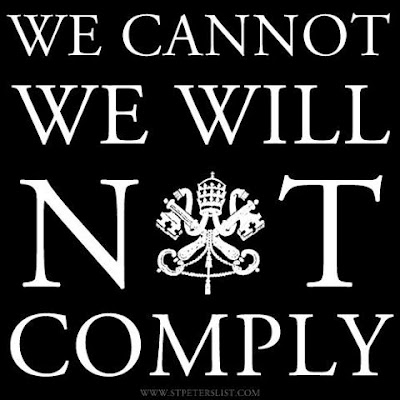Christian life under Islam.
Here's a post I lifted from Pajamas Media. Tell me again about religious freedom under Islam, this bishop is fairly low key but enough gets through to understand the truth is different than what apologists for the "religion" of peace might say.
An Interview with the Bishop of Arabia
The Swiss-born Paul Hinder is the Catholic Church’s bishop of Arabia. Pierre Heumann of the Swiss weekly Die Weltwoche spoke with him recently on “inter-religious dialogue,” the political tendency of Islam, and the difficulties confronted by practicing Christians in Arab countries. The interview appears here in English.
John Rosenthal
(Translator)
***
Bishop Hinder, next year Switzerland will be deciding whether minarets should be permitted in the country. How would you advise Swiss voters to vote?
Minarets are supposed to mark the presence of Muslims in Switzerland. Is a political claim to power also connected to this symbolism?
I cannot rule out the possibility. But I would answer with another question: why should the minaret of a mosque not be visible? On the other hand, a 200-meter-high minaret would certainly be an affront and would disrupt the city’s appearance. I would say that this has little to do with religious freedom.
The disruption would be less severe than in the case of the building of the glass skyscraper of a bank.
But the bank is also a sort of religion. (Smiles) What would interest me more than the building of minarets is what is preached inside the mosque, in what language the faithful are addressed, and how the imams have been trained.
About what in particular would you be concerned …
A completely separate subculture could evolve, which would have explosive potential. The tower is not necessarily the issue …
… in the last analysis a matter for building inspectors?
Rather the culture that is being practiced next to the tower is the issue. It is no offense against freedom of religion if one poses the basic demand that Muslims who live in a Western country recognize fundamental rights and the constitution. In this regard, there is certainly a lot of room for improvement.
In the Arab countries for which you are responsible as bishop, church towers are taboo.
In Qatar recently, we were permitted to build a church large enough to accommodate 2,700 of the faithful. There is not a church that big in all of Switzerland. But it is true that in the agreement with the government it is clearly stated that no religious symbols should be visible from the exterior. It is only in the interior that Christian symbols are tolerated. If I had not accepted this condition, my request for the building permit would have been rejected. I did not even apply for the permission to build a church tower.
Are you permitted to be seen in the street in your vestments?
We voluntarily practice a certain degree of discretion, in order not to provoke anyone. But in most of the countries of the [Arabian] Peninsula, it is not a problem to wear the clothing of a church official.
Are Christians persecuted in your region?
In my territory, there are no indigenous Christians or surviving minorities from pre-Islamic times like in Iraq. As far as foreign Christians are concerned, there is not any active persecution. There are, however, practices that could certainly be construed as having the character of persecution.
What are you thinking of?
In my diocese, a Christian could hardly ever become a citizen. The only exception is Bahrain. If you practice any religion other than Islam, this frequently results in discrimination in one’s profession.
Despite all the difficulties, you militate for inter-religious dialogue.
Of course. Is there any alternative? But the way is long and difficult and also fragile. The point of inter-religious dialogue is not to get the adherent of another religion to accept our position. But he should learn to accept my belief, just as I accept his, without him having to convert to Christianity himself. In the meanwhile, a learning process has begun in this regard.
You say that it is a long process.
The problems already turn up just with basic concepts. For example, when a Muslim speaks of religious freedom, what he means is the right of a Christian woman to marry a Muslim man and to remain a Christian thereafter. Now, part of dialogue is having the courage to pose hard questions.
Which questions?
For example, what happens as regards the children of a mixed couple?
According to Islamic law, they are automatically Muslims.
Yes. And we also have to ask how matters stand as regards a Christian man who marries a Muslim woman. He also automatically becomes a Muslim. He is not even asked if this is what he wants. It would be nonsensical to expect that in the end the two religions would fuse into one. But I believe that a certain change of orientation is possible on a practical level.
What do you have in mind?
Inter-religious dialogue has to be subdivided into specific tasks. For example, the respective understanding of history of the two sides needs urgently to be subject to critical examination. We have to ask what is being taught in the schools and schoolbooks about the other religion. From what I have heard, abstruse things are related about Christianity. But it is progress at least, when a young Muslim learns that he does not have to kill me just because I think differently than he does and have different beliefs.
Are you allowed to proselytize?
For a Muslim, it goes without saying that he should make the message of his faith understandable to other people. I would like to be able to do the same for my religion. Unfortunately, that is not possible in the Arab countries.
What would be the consequence if you proselytized nonetheless?
I assume I would have to leave the country. But conversions from Islam to Christianity are in any case illusory. We strongly advise native residents against converting.
Why?
The convert would not be able to practice his faith. He could not go to church. His family and the people in his environment would not allow it. If he insists, nonetheless, on converting to Christianity, the only option that remains is to emigrate.
Are there forced conversions to Islam?
Prisoners who have memorized the Koran or even converted to Islam can expect to receive reductions in their prison time or even be released. That is, of course, a strong incentive. On the other hand, I do not know of any Western country in which the punishment of a Muslim is reduced if he gets baptized.
Your “clientele” consists of foreign workers who live for the most part in poor conditions in work camps: Catholics from the Philippines or India or Sri Lanka. Are you allowed to hold mass in these camps?
Officially, I am not allowed, even if it is occasionally tolerated. In most Arab countries, we are
only permitted to hold mass in places that have been put at our disposition by the government. It has become standard practice to propose camps, mosques, athletic fields, and cinemas. But there are no churches or temples, even though non-Muslims are often the majority in the camps. For many foreign workers, that is a problem, since most do not have enough money to be able to afford transportation to a service elsewhere. For me it is incomprehensible that precisely those who place so much emphasis on faith in God, and who criticize the West for becoming unreligious, render it difficult for others to hold religious services.
Can you provide support to workers in the camps who work for minimum wage: for example, be sponsoring soup kitchens?
There are others who are responsible for that. We can only help at a very private level.
Saudi Arabia is particularly strict. Islam is the only religion permitted, but there are well over a million Christians who live there.
It is true that normal Church activities are not possible there. If a Christian has a bible in the house, he no longer is subject to punishment. But if someone brings in a whole shipment of bibles, then that creates problems. But the rosary or wearing a cross under one’s clothing is okay. Needless to say, I cannot travel around freely as a bishop. But that does not mean that no contacts or visits are possible.
You once said in an interview that there are tendencies in Islam to strive for global power. Thus, for example, Saudi Arabia built numerous mosques in Bosnia after the war despite the existence of other more pressing problems. Does dialogue still make sense under these conditions?
The distinction between proselytism and political goals is not so simple in Islam.
In Islam, the congruence between religion and politics is indeed part of the system.
That could be debated. But in light of history, one can say unambiguously that the religious message and its political realization have been congruent. And this is still the case today. To that degree, it is to be expected that the political tendency is dominant in Islam. This can have consequences where Muslims come to represent a majority of the population. I am not one of those who fears that Europe could be overrun by Muslims. But I am also not so naïve that I would not see the danger.
What do you fear then?
For example, a kind of gradual hollowing out of human rights — which is a danger that does not only come from Muslims, however. We need to establish clear conditions. If Western, pluralistic democracy is important to us, then we have to insist that the radical wing of Islam purifies itself and clearly recognizes the principles of democracy and the rule of law. We may also be permitted to expect leading Muslims to address this issue more clearly than they have up to now.















2 comments:
All one has to do is look at what is going on in Europe. The Muslims immigrate to European countries, but instead of trying to fit in, they turn around and DEMAND that their host country submit to their demands even in allowing Sharia Law and Courts.
I have heard talk that we have some law makers right here in America that are discussing the possibility of allowing Sharia courts here.
They are very strong in their faith. The question is are we Christians as strong? I don't like what I see happening in Europe but I sure as hell don't like what I am seeing in the United States.
Pops
Post a Comment